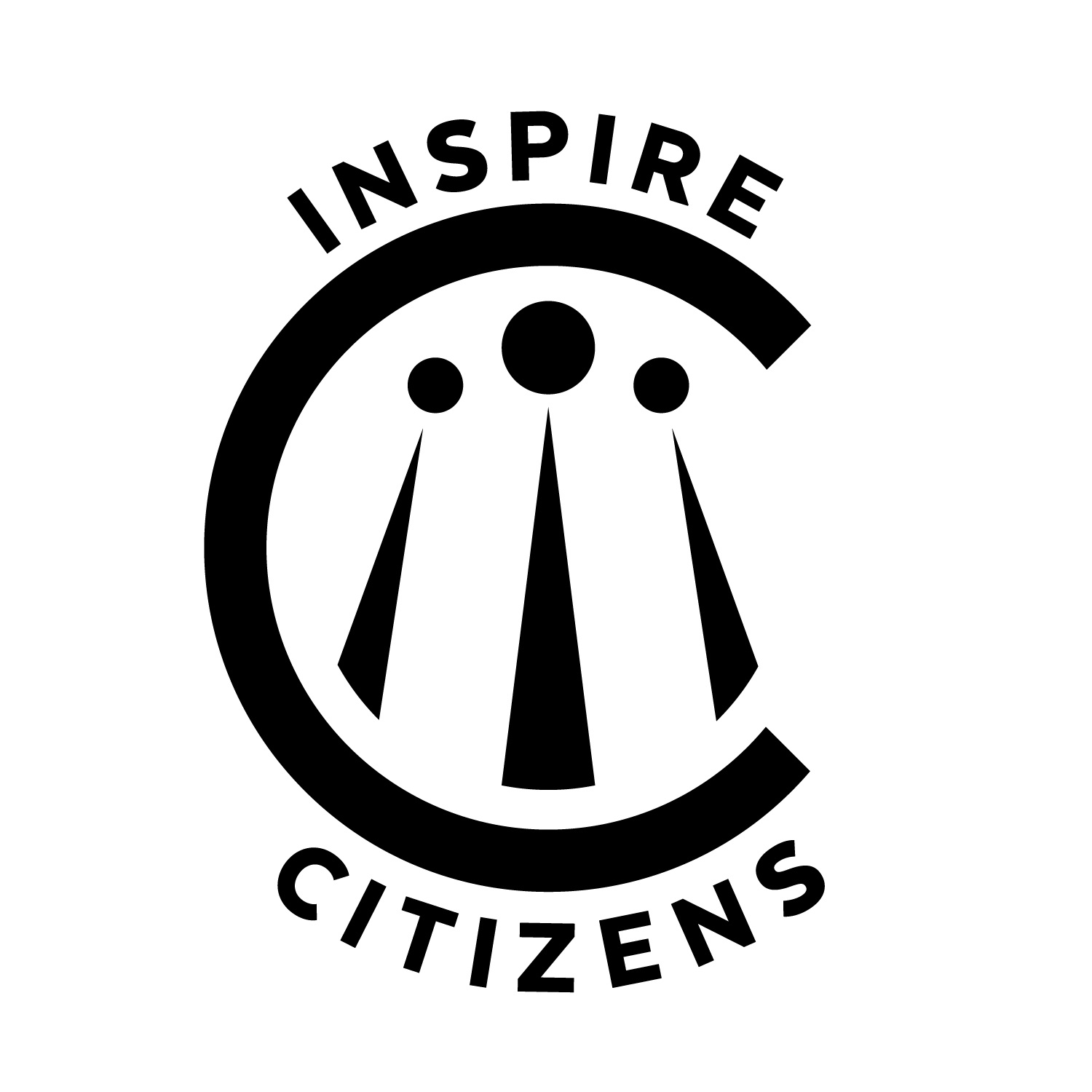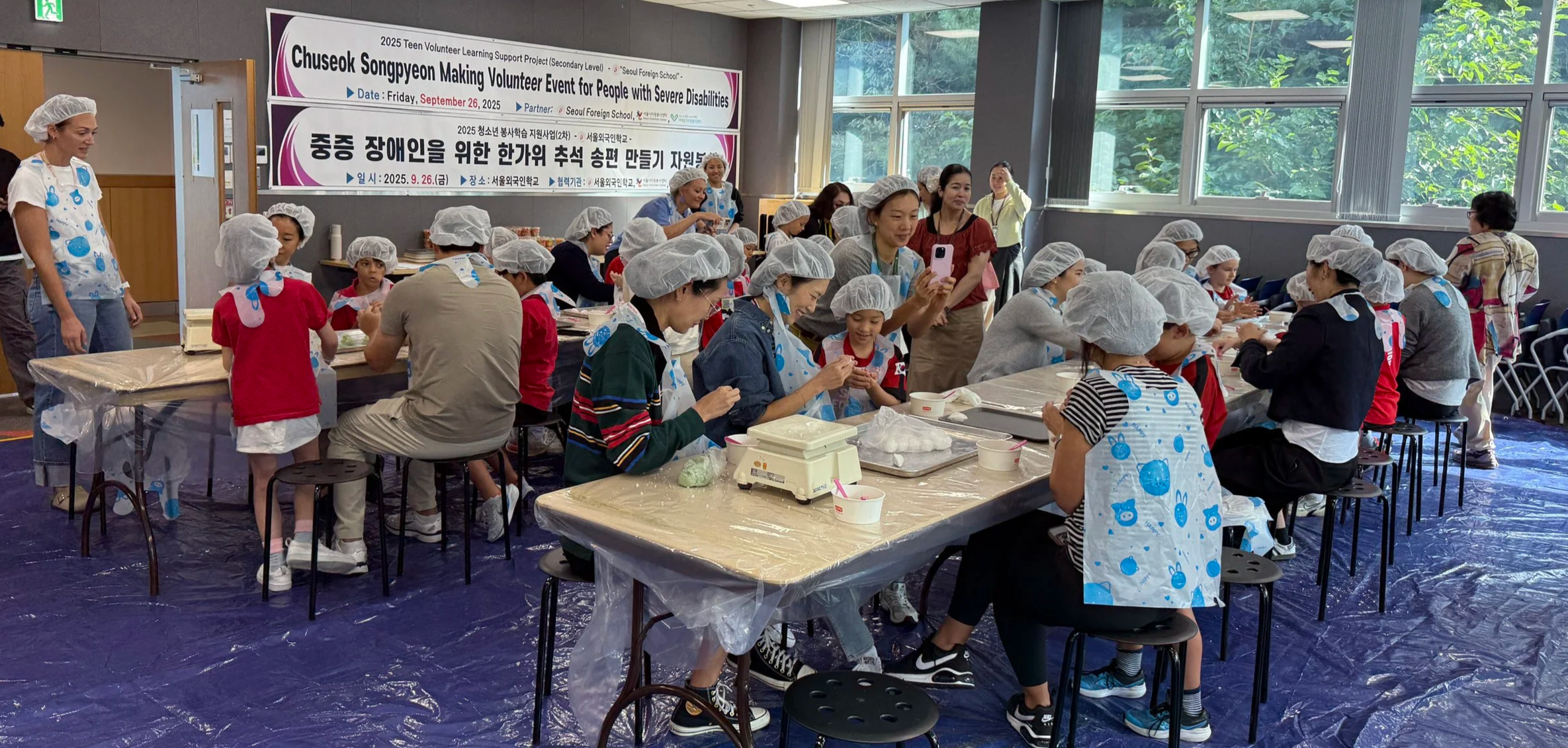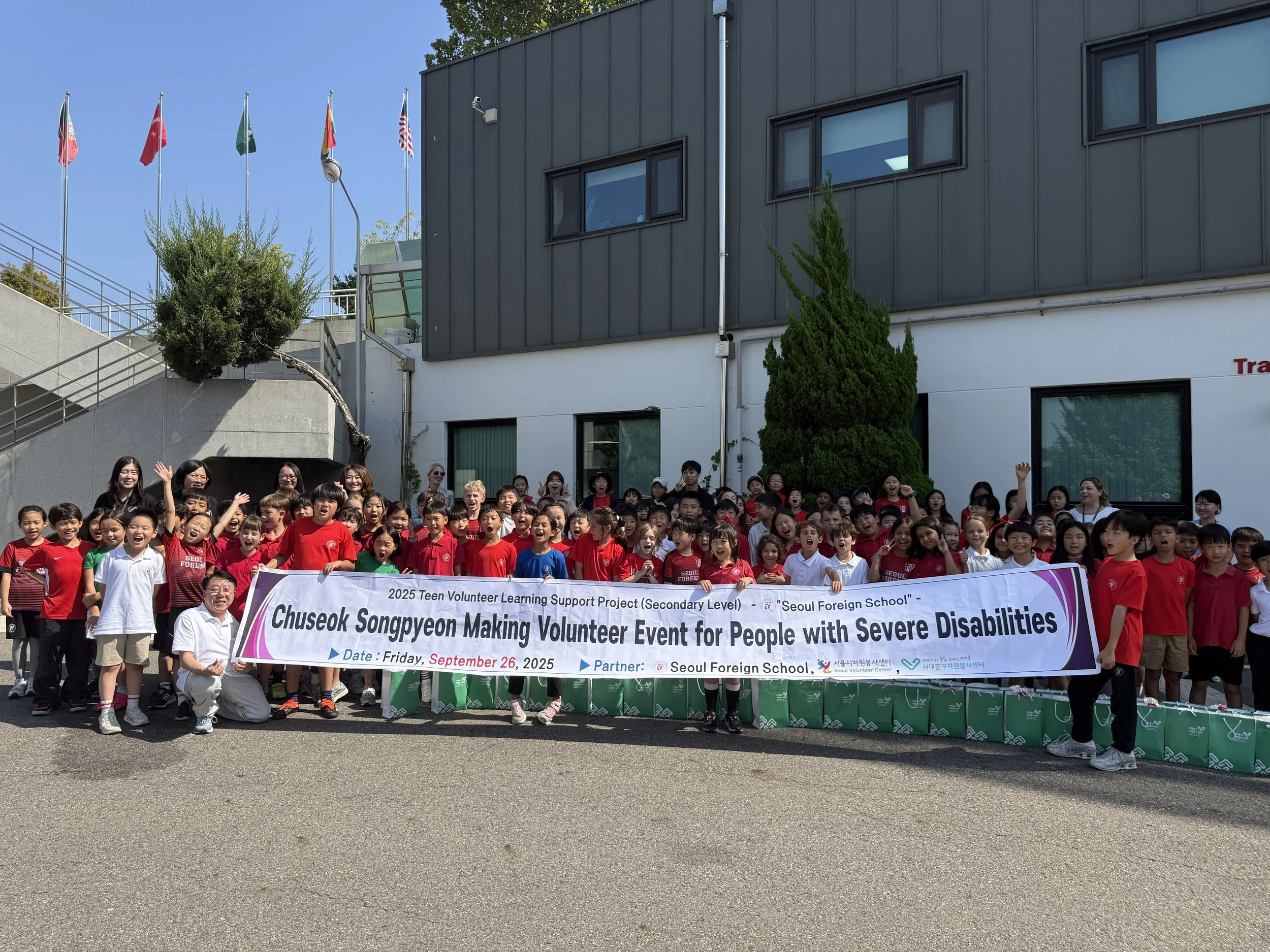Building Bridges: How Seoul Foreign School Transforms Learning Through Community Partnership
When Michael Lucchesi arrived at Seoul Foreign School as PYP Coordinator, he found a faculty already energized by the possibilities of inquiry-based education. The school was transitioning to the Primary Years Programme, and teachers were ready to move beyond simply transferring existing practices into new frameworks.
Seoul Foreign School third graders work alongside parents and community partners to craft traditional Korean songpyeon rice cakes for others during the Chuseok celebration. The project exemplifies how the school's adoption of the Empathy to Impact inquiry cycle creates authentic learning experiences that connect cultural understanding with meaningful community action.
Finding Aaron Moniz, of Inspire Citizens, already playing a key role in this transition, Michael readily made the connection and welcomed Aaron as a thought partner in what was to come. This collaboration has seen Seoul Foreign School explore the vast potential in expanding how elementary students engage with their local community. Through carefully developed partnerships with Korean government officials, community organizations, and local leaders, the school has created authentic learning experiences that connect curriculum standards with real-world action.
The Foundation: Rebuilding with Purpose
The partnership between Michael and Aaron began with fundamental curriculum work. "When Aaron came in, we were ready to say, okay, let's actually be a lot more focused on what it is that we're trying to create here," Michael explains. Together, they facilitated the rebuilding of all units from kindergarten through fifth grade, a process that took two to three years but established the coherent foundation necessary for meaningful community engagement.
“The teachers were ready for it," Michael recalls. The collaborative process involved examining social justice standards, AERO guidelines, and Next Generation Science Standards to identify "the actual meat" of what students should be learning.
This systematic approach proved essential. "Now that we have this, it becomes a lot more authentic to be able to say, okay, well, we all should be fostering these kids to develop their sense of agency, to become more confident, to be more resilient, and to want to take action," Michael notes. "How do we amplify that in these units that now have purpose, that now have content, that now have direction, and that now have coherency?"
The Power of the Empathy to Impact Model
Central to Seoul Foreign School's success has been the adoption of Inspire Citizens' Empathy to Impact inquiry cycle. Michael, who has experience with various inquiry models, found this approach uniquely compelling. "I've always found a lot of inquiry cycles quite clunky," he explains. "But what I really like about the Empathy to Impact model is its elegance, its simplicity, and that it inherently is an inquiry cycle that is built around people."
This people-centered approach opens up learning in profound ways. "As soon as you open up that opportunity to look at it through the lens of other people, it becomes that sort of window into who are we, encouraging students to observe more genuinely the identities in our own class," Michael explains. The diverse, international, and mobile nature of the school community becomes a strength rather than a challenge, creating connections with people "who maybe don't go to our school, but have just as many similarities, or just as many differences."
Parents join students and teachers in the rice cake-making process, demonstrating the strong community support that PYP Coordinator Michael Lucchesi has cultivated.
Breaking Through Barriers: The Role of Key Partners
The transformation at Seoul Foreign School demonstrates how the right partnerships can break through perceived barriers to community engagement. A pivotal figure in this process has been Jean Kim from Christian Ministries, who connected the school with Mrs. Hong, a local government liaison for the Seodemun-gu district.
“Jean was very perceptive and connected us with Mrs. Hong who is really supportive – she has been fantastic," Michael explains. Mrs. Hong's openness created opportunities that seemed almost serendipitous. "So far, it just happens that a lot of the groups that our teachers thought worked, or would work, have been from Seodaemun-gu."
This success has led to expansion into other districts. Michael is now meeting with officials from Eunpyeong-gu for a Grade 2 soap-making project, demonstrating how initial partnerships create pathways to broader community engagement.
Real Learning in Action: The Third Grade Chuseok Project
The school's approach comes to life in projects like the third grade Chuseok celebration, where students made traditional Korean rice cakes for families and workers connected to the Sunshine Organization. This project exemplifies how the Empathy to Impact cycle creates authentic learning opportunities that connect curriculum standards with meaningful action.
The project required extensive coordination with local government, community organizations, and parents. "When I reached out to the Parent Association, we got across the whole school, about 50 parents, with parents enthusiastically stating that ‘yes, we want to support that’.”
The cultural learning extends beyond the classroom. Mrs. Hong taught Michael about the ceremonial importance of gift-giving in Korean culture. "Whenever you're making a gift, there's also a ceremonial handover," he explains. “She communicated to us that this is a big thing... you're basically letting that person who's carrying the gift that this represents our time, our effort and our love and we need to make sure that the people hear that."
The Inspire Citizens Difference
SFS and community partners gather to celebrate the Chuseok Songpyeon Making Volunteer Event, a partnership with local government officials and the Sunshine Organization. This collaboration, facilitated by Jean Kim from Christian Ministries and Mrs. Hong from the Seodemun-gu district office, represents the breakthrough in community engagement that has transformed elementary learning at the school.
Michael identifies several key contributions that Aaron Moniz and Inspire Citizens brought to Seoul Foreign School's journey. "I think it was three pieces. Number one: energy, perspective, and just enthusiasm. You know, that's always infectious," he begins.
The second contribution was Aaron's role as a thought partner during the crucial curriculum rebuilding phase. "It was really good to have that thought partner relationship where we can say, okay, let's look at social justice standards… let's look at AERO, let's look at NGSS, let's find what is the actual substance of what we’re aiming to teach."
The third piece involved purposeful development of student agency. "If we start to think of learning through that Empathy to Impact cycle, the conversation shifts to identifying the people who need to be involved.” This shift in perspective opens up possibilities: diverse books, online sources, parent involvement, guest speakers, and crucially, community partnerships that Jean Kim has cultivated over years.
No Opportunity Cost
Remarkably, Michael reports that this community-focused approach hasn't required sacrificing traditional academic content. "Genuinely, out of all of the conversations about potential challenges, I would say there has been no opportunity cost.”
He attributes this to the school's approach: "The idea was let's review what are we doing, and how do we make what we're doing better? Where are the opportunities?" An upcoming Grade 2 project with Angel's Haven, a center that provides skills training through cosmetics and ceramics labs, illustrates this philosophy. The partnership aligns perfectly with the grade's unit on creative application of materials, adding authentic community connection without displacing curriculum requirements.
Building Sustainable Success
The enthusiasm for this approach has become self-reinforcing among faculty. "It's nice that now teachers are declaring that they want to do more, because I think they know what they're trying to do and why they're trying to do it," Michael observes. Teachers are continuously approaching him with ideas for additional community partnerships, creating a culture where meaningful engagement becomes the expectation rather than the exception.
This transformation at Seoul Foreign School demonstrates how thoughtful partnerships, systematic curriculum development, and commitment to student agency can create learning experiences that serve both academic standards and community good. Leaning into the support of Inspire Citizens and capitalizing on the dedication of SFS educators – with Michael Lucchesi facilitating ongoing collaboration spaces for teaching teams – students are discovering that learning extends far beyond classroom walls into the rich fabric of their local community.



